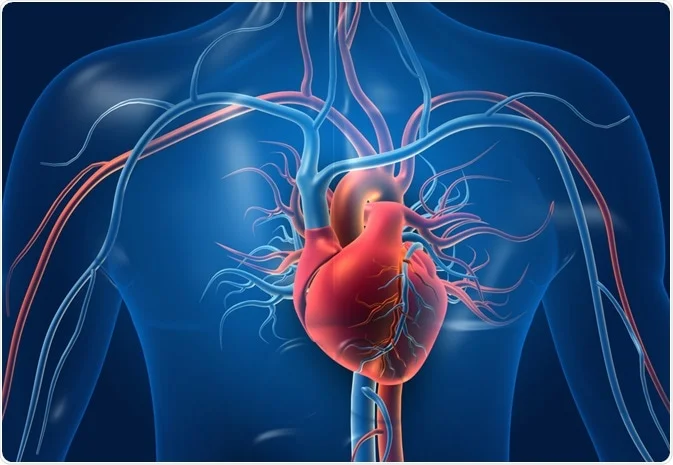A few investigations propose that during winter, the danger of stroke, cardiovascular breakdown, cardiovascular issues, arrhythmia, and problems rises a few times. Many top cardiologists imagine that it occurs because of the body's physiology and the temperature drop that impacts the heart's usefulness.
Image Source: - News MedicalAs indicated by a concentrate by JAMA Cardiology, a month to month peer-investigated clinical diary, which dissected data on around 2,74,000 individuals living in Sweden in 2018, the danger of having a respiratory failure was most prominent on days when the temperature was beneath edge of freezing over.
PLOS One, open access logical diary, in a review in 2015 found in excess of a 31 percent expansion in coronary episodes in the coldest months of the year contrasted and the hottest. A few examinations recommend that during incredibly chilly conditions, the danger of getting a stroke increments by 80%, especially when the temperature plunges under 15 degrees Celsius.
As temperatures drop, the veins fix and blood stream accelerates to help stay warm. That is the reason the pulse is frequently higher in colder seasons, believe cardiologists.
"Beginning of winters can inspire blended responses. According to some review, the odds of an individual experiencing a coronary failure goes up almost 33% during winters. The Coronary conduits like different corridors can tighten during winter which can prompt a helpless stockpile of blood to the heart muscle. Diminished blood supply can encourage myocardial ischemia and coronary episode," said Tarun Kumar, Professor of Cardiology, ABVIMS, and RML Hospital.
Dr. Tarun said that there is expanded blood volume during winters. As in summer, there is expanded liquid misfortune through sweat which is missing in winters. It can prompt increment salt and liquid maintenance during winter which can prompt an increment in circulatory strain and coronary episodes.
"In view of hormonal varieties during winters, there is an expansion in degrees of thickening elements including fibrinogen. Adding fuel to fire is vasoconstriction and platelet aggregability alongside thickening variables which can prompt an expanded inclination for cluster development and coronary failures", he added.
Expanded calorie admission and diminished active work can actuate bunch actual changes in the body including weight gain and vascular changes which can give a milieu to cluster arrangement and cardiovascular failure, he said, adding that old, drunkards, smokers, individuals with stationary ways of life are more in danger.
While discussing safety measures, he encouraged to decrease openness to cold, keep away from over the top liquor admission and there ought not be coal-based or defective warming apparatuses in shut rooms. He additionally exhorted going for ordinary active work and pulse and blood sugars level tests after standard stretches.
Dr. Vipul Gupta, Director Neoinnervation, Artemis Agrim Institute of Neurosciences, said: "One of the superb reasons can be credited that during the virus season the veins tighten, which prompts expansion in circulatory strain, which implies that the blood must be truly siphoned more earnestly to go around the body, making it one of the central point for the beginning of stroke".
"Additionally, there are different changes in the substance balance in our body during winter including cholesterol levels and some different variables that expand the odds of thickening. Changes in actual work which normally diminishes throughout the cold weather a long time also as weight gain can assume a part. Most likely this is the explanation stroke cases go up by 11% during winter," added Gupta.
Low temperature chokes the veins which thus expands pulse and totals the blood thickening interaction, said Cardiologist Praveen Jha.
He said that Vitamin D lack is likewise normal in winter which additionally adds to cardiovascular infection. Air contamination and actual inertia are likewise explanations behind ascending in cardiovascular failures during winter, said Jha. — IAN




0 Comments